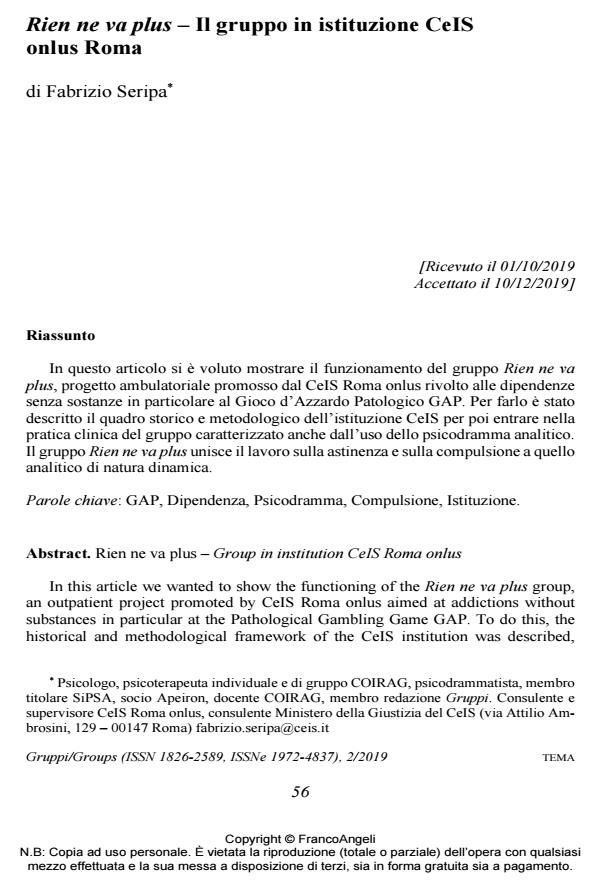Rien ne va plus - Group in institution CeIS Roma onlus
Journal title GRUPPI
Author/s Fabrizio Seripa
Publishing Year 2020 Issue 2019/2
Language Italian Pages 19 P. 56-74 File size 223 KB
DOI 10.3280/GRU2019-002005
DOI is like a bar code for intellectual property: to have more infomation
click here
Below, you can see the article first page
If you want to buy this article in PDF format, you can do it, following the instructions to buy download credits

FrancoAngeli is member of Publishers International Linking Association, Inc (PILA), a not-for-profit association which run the CrossRef service enabling links to and from online scholarly content.
In this article we wanted to show the functioning of the Rien ne va plus group, an outpatient project promoted by CeIS Roma onlus aimed at addictions without substances in particular at the Pathological Gambling Game GAP. To do this, the historical and methodological framework of the CeIS institution was described, before entering the clinical practice of the group also characterized by the use of Analytical Psychodrama. The Rien ne va plus group combines work on abstinence and on compulsion with an analytical one of a dynamic nature.
Keywords: Pathological gambling, Addiction, Psycodramma, Compulsion.
Fabrizio Seripa, Rien ne va plus - Il gruppo in istituzione CeIS onlus Roma in "GRUPPI" 2/2019, pp 56-74, DOI: 10.3280/GRU2019-002005